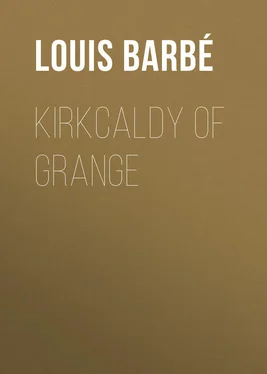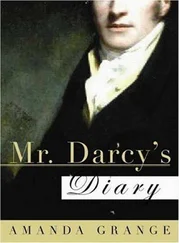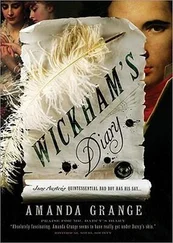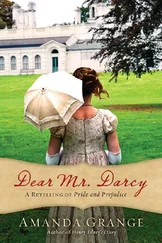Louis Barbé - Kirkcaldy of Grange
Здесь есть возможность читать онлайн «Louis Barbé - Kirkcaldy of Grange» — ознакомительный отрывок электронной книги совершенно бесплатно, а после прочтения отрывка купить полную версию. В некоторых случаях можно слушать аудио, скачать через торрент в формате fb2 и присутствует краткое содержание. Жанр: foreign_antique, foreign_prose, на английском языке. Описание произведения, (предисловие) а так же отзывы посетителей доступны на портале библиотеки ЛибКат.
- Название:Kirkcaldy of Grange
- Автор:
- Жанр:
- Год:неизвестен
- ISBN:нет данных
- Рейтинг книги:5 / 5. Голосов: 1
-
Избранное:Добавить в избранное
- Отзывы:
-
Ваша оценка:
- 100
- 1
- 2
- 3
- 4
- 5
Kirkcaldy of Grange: краткое содержание, описание и аннотация
Предлагаем к чтению аннотацию, описание, краткое содержание или предисловие (зависит от того, что написал сам автор книги «Kirkcaldy of Grange»). Если вы не нашли необходимую информацию о книге — напишите в комментариях, мы постараемся отыскать её.
Kirkcaldy of Grange — читать онлайн ознакомительный отрывок
Ниже представлен текст книги, разбитый по страницам. Система сохранения места последней прочитанной страницы, позволяет с удобством читать онлайн бесплатно книгу «Kirkcaldy of Grange», без необходимости каждый раз заново искать на чём Вы остановились. Поставьте закладку, и сможете в любой момент перейти на страницу, на которой закончили чтение.
Интервал:
Закладка:
III. THE CONSPIRATORS AT BAY
The men who had so deliberately planned and so boldly perpetrated the murder of Cardinal Beaton, were fully conscious of the gravity of the situation in which they now found themselves. They knew that the crime which they had committed in slaying the Chancellor of the Realm bore with it the guilt of high treason, and that, if they refused to give themselves up, they would be declared rebels, and dealt with as such. But they had gone too far to retreat. If safety were to be secured, it could only be by union amongst themselves; and instead of separating, to wander as outlaws through the country or to shut themselves up singly in their fortalices, they determined to maintain themselves in the stronghold which they had captured. Its very position seemed to suggest and to justify such a course. Situated on a rock-bound headland a little to the north of the city of St Andrews, the imposing castle which Bishop Roger, son of the Earl of Leicester, ‘founded and gart bigged be,’ in the year 1200, was guarded on two sides by the sea, and, whilst practically inaccessible to a hostile fleet, might, with comparative ease, keep up communication with a friendly force, and receive supplies from it. A deep moat and strongly fortified walls protected it from the attack of a land army, and had more than once before enabled it to hold out against superior numbers. Food and ammunition had been abundantly provided by Beaton himself, as a precaution against a possible attempt on the part of the English; and, within the walls which had been known to give accommodation to guests whose mounted attendants alone numbered four hundred and twenty, there was ample room for quartering the partisans by whom they expected to be joined.
To the advantages which the natural position and elaborate defences of the fortress afforded, chance added another, which, though of a very different kind, might be depended upon to operate strongly in favour of the conspirators, and which may, very probably, have exercised a not unappreciable influence upon their decision. It happened that, at the time when Cardinal Beaton’s castle was seized upon, James Hamilton, the Earl of Arran’s eldest son, was residing with him. Instead of being sent away, as were the other gentlemen of the household, he was retained by the captors as a hostage. It was thought that consideration for his son’s safety would hamper the Regent’s action; and not only prevent him from having recourse to measures of extreme severity in the course of the unavoidable siege, but also affect the conditions to be granted, if the garrison were eventually forced to surrender.
Nor was that all. A scheme of Arran’s own, for the marriage of his heir with the young Queen of Scots, was thought to be at the bottom of his opposition to the alliance by which the King of England hoped to unite the two Crowns. In the eyes of Henry, James Hamilton was a rival to his own son Edward; and they who had it in their power to hand over the youth to his safe keeping, possessed a further claim upon the protection and assistance which his share in the plot for Beaton’s destruction led them to expect from him. Under the special circumstances of the case, there was, therefore, as much wisdom as daring in what might, at first sight, appear the desperate determination of holding the Castle.
The first to throw in his lot with the sixteen, was one who had not, it is true, figured so prominently and actively as they in the slaughter of the Cardinal, but who was too much implicated in their action, and could too easily be proved to be in actual fact their accomplice, to expect anything but the severest treatment at the hands of the avengers. Before the day was out, Sir James Kirkcaldy, with his sons and brothers, arrived in St Andrews, and was admitted into the Castle. Some more of the Melvilles followed soon after; and by gradual accessions to its strength, as the news of what had been done at St Andrews spread through the country, the rebel garrison increased to about one hundred and fifty fighting men. The names of those connected with the murder either as ‘first interprisers,’ or as ‘part takers, maintainers, defenders, victuallers, assisters, and counsel givers,’ numbered thirty-five. They were set forth in the proclamation, issued thirteen days after the death of Beaton, which was publicly read, at the Market Cross of Cupar, by John Paterson, Carrick Pursuivant, and which summoned the persons mentioned in it to appear within six days at the bar of Parliament, under pain of being declared rebels. Amongst them were eight Kirkcaldys and four Melvilles. That the majority of those who had taken refuge at St Andrews, because they ‘suspected themselves to be borne at evil will,’ were not mistaken as to the sentiments entertained towards them by the party of which the Cardinal had been the head, was proved by ‘letters and memorials’ which were discovered amongst Beaton’s papers, and which disclosed a project, formed by him, and sanctioned by the Council, for their treacherous and summary removal, by death or imprisonment, on the Monday following.
Amongst others, whom sympathy with its garrison drew to St Andrews, mention is made by the chroniclers of John Knox and his three pupils – George and Francis Douglas, and Alexander Cockburn – of John Rough, a Reformed Preacher, whom Bonner subsequently sent to the stake, as a heretic; of Henry Balneaves of Halhill, who had occupied the position of Clerk-Treasurer under Sir James Kirkcaldy; and of Sir David Lindsay, who found the subject of a poem in the tragedy that had been enacted in the Castle, and gave expression to the sentiments of the less fanatical section of his party in the well-known lines: —
‘As for the Cardinal, I grant
He was the man we well might want;
God will forgive it soon.
But of a truth, the sooth to say,
Although the loon be well away,
The deed was foully done.’
The measures taken by the Regent with a view to the punishment of the rebels did not bear evidence of much zeal or energy on his part. Nearly three months had elapsed since the murder of Beaton when, on the 21st of August, a proclamation was issued, calling upon the vassals of the Crown to assemble within a week for the purpose of forcing the garrison of St Andrews into submission. But, even that does not appear to have been followed by any very strenuous exertions. A body of troops was, it is true, sent against the rebels; but the military operations must have been conducted in a very inadequate manner, for, at Martinmas, according to Pitscottie, ‘all men cryed out and desired the Governour to punisch sick injuries done within the realme; and also the Queine perswadit the Governour to put remeid heirto.’
It was mainly by the Catholic clergy that pressure was brought to bear upon Arran. By voluntarily undertaking to contribute £2000 monthly towards the support of the royal troops, as long as the siege of the Castle should last, the prelates gave practical proof of their determination not to allow the assassins of their religious and political leader, the Cardinal, to escape with impunity. Then, at length, ‘an army’ marched into Fifeshire, to invest the stronghold in real earnest; and ‘tua gritt cannones, to wit Cruik Mow and the Deafe Meg,’ were brought to bear upon it. The massive defences, it is true, suffered but slight injury from the lead-cased stone shot which the primitive artillery of the time discharged against them; but the mere fact of its being cut off from all communication on the land-side gradually began to tell on the garrison; and the leaders found themselves obliged to make urgent appeal for assistance to their friend and protector, Henry VIII. As early as the beginning of September, in consequence of the proclamation which the Regent had issued shortly before, and which indicated the commencement of hostilities, they had sent letters to the English Council; and on the seventeenth of that month the King was advised to send ‘at least some small force, which should not onely appeare a comfort to them, but be a defence against the Scottis on the sees.’ The immediate effect of this recommendation was the dispatch of eight ships, with the ‘Maister of Wark of Ingland,’ whose object, according to the Diurnal of Occurrents, was ‘to spy’ the Castle. It may be doubted whether this first squadron brought any material assistance to the besieged; for, when it returned, about the end of October, ‘William Kirkcaldy of Grange, younger, past to Ingland, for supplie,’ with it, accompanied by Henry Balneaves of Halhill and John Lesley.
Читать дальшеИнтервал:
Закладка:
Похожие книги на «Kirkcaldy of Grange»
Представляем Вашему вниманию похожие книги на «Kirkcaldy of Grange» списком для выбора. Мы отобрали схожую по названию и смыслу литературу в надежде предоставить читателям больше вариантов отыскать новые, интересные, ещё непрочитанные произведения.
Обсуждение, отзывы о книге «Kirkcaldy of Grange» и просто собственные мнения читателей. Оставьте ваши комментарии, напишите, что Вы думаете о произведении, его смысле или главных героях. Укажите что конкретно понравилось, а что нет, и почему Вы так считаете.












